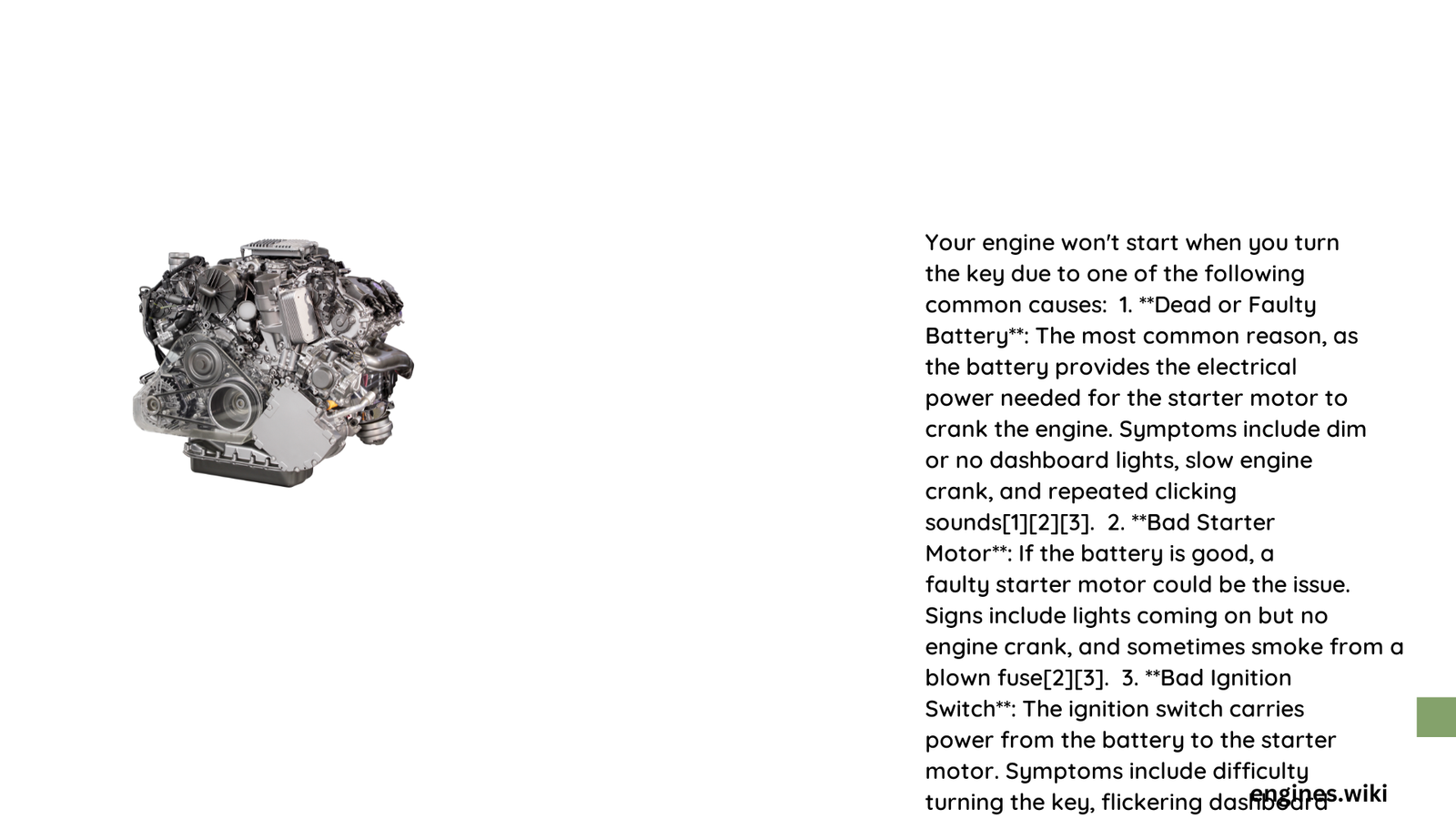When your engine refuses to start, it can be a frustrating and perplexing experience. Modern vehicles have complex electrical and mechanical systems that can fail for various reasons. Understanding the potential causes behind a non-starting engine is crucial for quick diagnosis and resolution. From battery issues to fuel delivery problems, this comprehensive guide will walk you through the most common reasons why your engine won’t start when you turn the key.
What Causes an Engine to Fail Starting?
Can Battery Problems Prevent Engine Start?
Battery issues are often the primary culprit when an engine won’t start. Here’s a detailed breakdown:
| Battery Condition | Voltage Range | Potential Impact |
|---|---|---|
| Fully Charged | 12.6 – 12.8V | Normal Operation |
| Partially Discharged | 12.4 – 12.6V | Weak Start |
| Critically Low | Below 12.4V | No Start Condition |
Battery Diagnostic Checklist:
- Check battery terminals for corrosion
- Verify battery age (typically 3-5 years lifespan)
- Test battery voltage with a multimeter
- Inspect battery cables for damage
Are Starter Motor Failures Common?
Starter motor problems can completely prevent engine cranking. Key symptoms include:
- Clicking Sound: Rapid clicking when turning the key
- No Sound: Absolute silence when attempting to start
- Intermittent Starting: Sporadic engine cranking
How Do Ignition Switch Problems Manifest?
Ignition switch failures can present multiple symptoms:
- Key won’t turn in the cylinder
- No electrical response when turning key
- Accessories fail to power on
- Intermittent electrical system performance
What Role Does Fuel System Play?
Fuel delivery issues can prevent engine start:
Potential Fuel System Blockages:
– Clogged fuel filter
– Faulty fuel pump
– Contaminated fuel injectors
– Low fuel pressure
Can Electrical Connections Cause Start Failures?
Electrical connection problems can interrupt the starting process:
- Corroded battery terminals
- Loose ground connections
- Damaged starter relay
- Faulty ignition switch wiring
Diagnostic Steps for Non-Starting Engine

Step-by-Step Troubleshooting:
- Battery Verification
- Check battery voltage
- Clean battery terminals
-
Test battery charge capacity
-
Starter Motor Inspection
- Listen for clicking sounds
- Check electrical connections
-
Perform continuity test
-
Fuel System Evaluation
- Check fuel gauge
- Listen for fuel pump activation
- Inspect fuel pressure
Professional Recommendations
While DIY diagnostics can help, complex electrical issues might require professional intervention. Consider consulting a certified mechanic if:
- Multiple diagnostic steps fail
- You lack specialized testing equipment
- The problem persists after basic troubleshooting
Final Thoughts
Understanding why your engine won’t start involves systematic investigation. By methodically checking electrical, mechanical, and fuel systems, you can often identify and resolve the underlying issue.
Pro Tips:
- Always carry jumper cables
- Maintain regular vehicle maintenance
- Keep battery terminals clean
- Replace battery every 4-5 years
Reference:
– Battery Testing Guide
– Starter Motor Diagnostics
– Fuel System Troubleshooting
